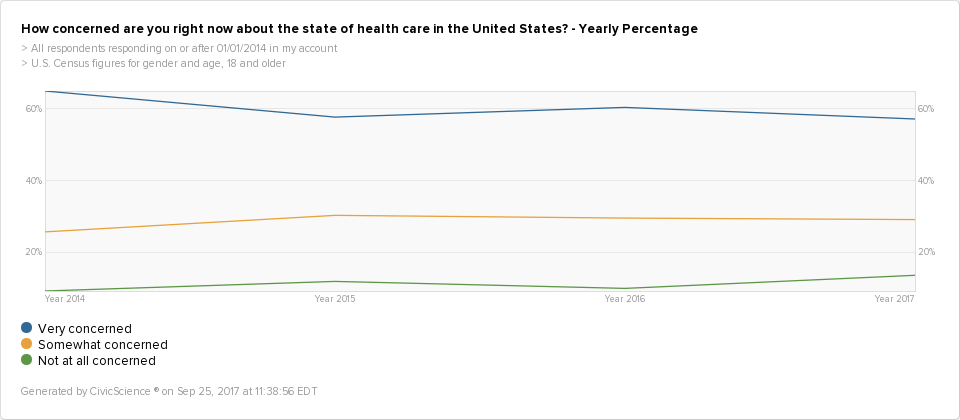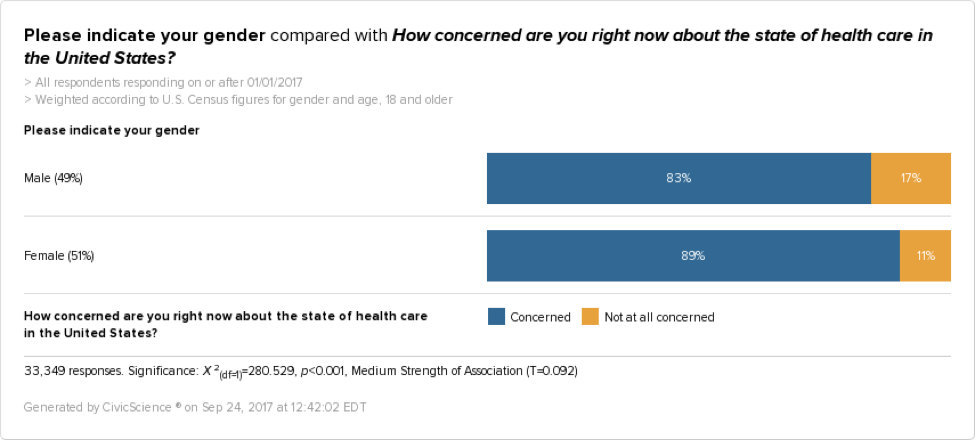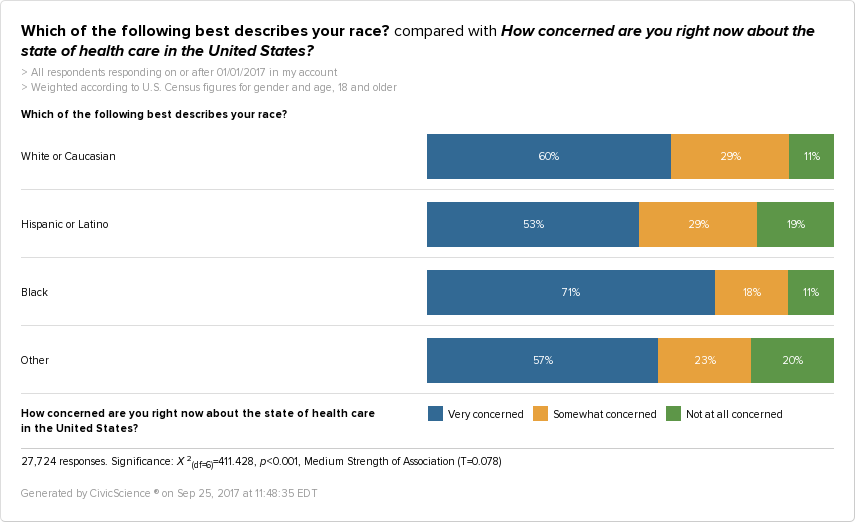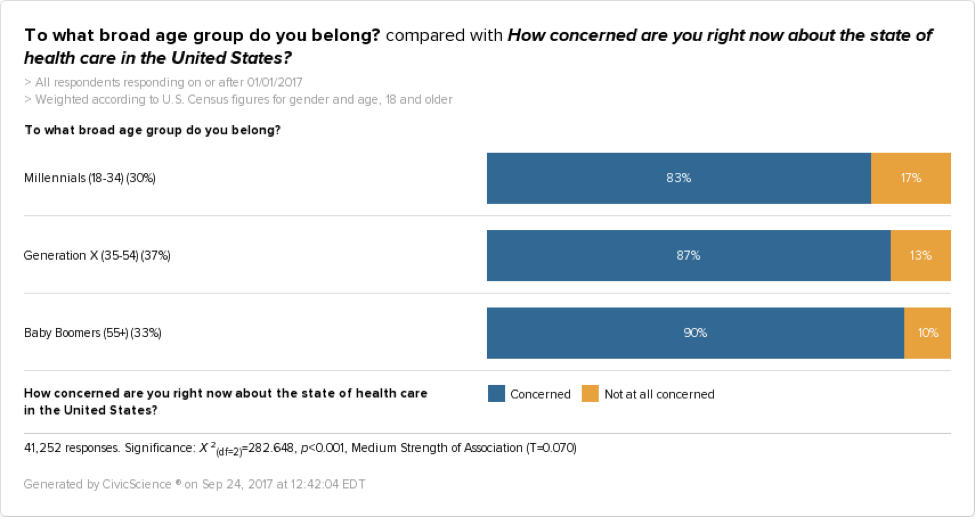The Gist: Concern about the state of healthcare in the U.S. is at one of its lowest points since the end of 2014. We broke down this trend to see who is most and least concerned, and how those profiles have changed over the past year.
Healthcare has been a hot topic in the U.S. for some time now, but it’s been especially present lately. It seems like every month a new bill is written, and then just as quickly taken back to the drawing board. As a self-employed person who turned 26 this year (yes, I know, I’m a youngin’) who had to turn to the Marketplace for health insurance, healthcare has definitely been on my mind.
I won’t be revealing my own stance on the issue here, but I can tell you that concern about health care in the U.S. has generally been on the decline since the start of 2017.
In fairness, concern is still pretty high, with an overall 86% of respondents answering that they’re at least somewhat concerned. However, the slight decline is worth noting.
With this in mind, I wanted to take a quick peek at these numbers, and see who’s concerned about the state of U.S. healthcare in 2017.
PROFILING CONCERN ABOUT HEALTHCARE IN 2017
Women are 6% more likely than men to answer that they’re at least somewhat concerned about the state of U.S. healthcare in 2017.
In 2016, however, 91% of women answered that they were concerned about the state of U.S. healthcare, as well as 88% of men. So among both groups overall, concern has dropped.
When looking at race, we see that African Americans are most likely to be at least somewhat concerned, while Hispanic / Latino respondents are among the least likely to be concerned.
African American concern is slightly up from 88% in 2016, Caucasian concern is slightly down from 92% in 2016, while concern among Hispanic / Latino respondents has remained the same.
Interestingly, Millennials are the least likely to be concerned about the state of U.S. healthcare in 2017, despite straddling the 26th birthday milestone, and being thought of as more liberal.
Baby Boomers are most concerned about healthcare, which makes sense for a generation nearing or in retirement.
However, Baby Boomers’ concern is down from 92% in 2016. Millennials’ concern is down from 86%, and Gen X is down from 90%.
SHARED INTERESTS BASED ON LEVEL OF CONCERN ABOUT U.S. HEALTH CARE
Finally, let’s look at some shared interests of those who are very concerned, somewhat concerned, and not concerned at all.
Respondents who are very concerned about the state of U.S. healthcare in 2017 are also likely to:
• Favor locally owned businesses
• Favor socially conscious businesses
• Read nutrition labels
• Follow health and fitness trends
• Prefer to get their news from TV news outlets
• Be concerned about environmental issues
Respondents who are somewhat concerned about the state of U.S. healthcare in 2017 are also likely to:
• Be regular fast food diners
• Donate to religious charities
• Be diligent savers
• Be NFL fans
• Be regular casual restaurant diners
Respondents who are not at all concerned about the state of U.S. healthcare in 2017 are also likely to:
• Be men
• Manage their money well
• Be regular upscale restaurant diners
• Be influenced most by internet advertisements
• Be regular coffee drinkers
• Live in the U.S. West
• Be unemployed
WHO IS MOST AND LEAST CONCERNED?
Baby Boomers and environmentalists are most likely to answer that they are concerned about the state of U.S. healthcare in 2017. In addition, we’ve noticed a small rise in the number of African Americans who are concerned.
With so much debate surrounding the state and future of healthcare, one might wonder why these profiles haven’t changed even more dramatically over the past months or years. Perhaps time will tell.












